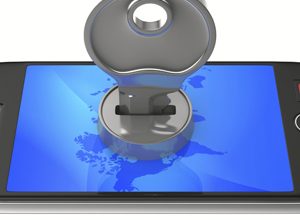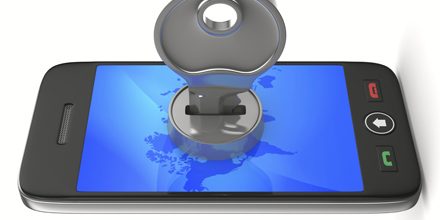
With about 75% of employees in the U.S. using their own devices for work communications and productivity, businesses must implement safeguards to avoid company data from being compromised should a device be stolen, hacked or contract a virus.
The BYOD (bring your own device) trend has grown as many employees have eschewed company-issued mobile devices, preferring to use their own.
But, while a company can install certain software and make security settings on its own phones, the task is harder when your workers want to use their own devices for their jobs, according to a new study by mobile solutions provider CDW.
Fortunately, the market has responded with systems and software to help businesses secure the personal smartphones and tablets that their employees use to conduct their jobs.
There are a number of benefits to allowing your staff to BYOD, according to the CDW report, including:
- More employee satisfaction — It allows them to choose the phone they prefer, and requires them to keep one device.
- Increased productivity — When your employees have access to your company’s resources, they can do their work from anywhere that is convenient.
- Cost savings — You won’t be shelling out for phones and cell phone plans, although you may need to pay for various security platforms.
- Disaster recovery — If disaster strikes, your staff can work remotely with their smartphones.
Also, because employees are likely to have their phone plans through a variety of carriers, if one carrier goes down in a disaster others may still be operational.
But, increased mobility comes with more risk to your company’s data or the information you store on your customers. When employees co-mingle personal and business uses on the phone it poses dangers, particularly if the device is compromised and passwords discovered.
The biggest concern is hackers gaining access to an employee’s personal files and using them as a gateway to your company’s data. This is made particularly easy if an employee uses the same password for both work and personal accounts.
Locked and loaded
The best weapon currently available for BYOD devices is what is known as Enterprise Mobile Device Management software.
Once the software is installed on your employee’s phone, it gives you the ability to set the security configurations for the device remotely. There are a number of great features with this technology, according to the CDW report, including:
- The ability to prevent data from being saved to removable media that are outside the organization’s control.
- The ability to restrict access to software, such as preventing use of the organization’s data on a device with applications which the company has not approved for use.
- Encrypting the business’s data stored on a device, to stop unauthorized applications and users from accessing it.
- The ability to monitor each device’s security settings, in order to detect violations of the firm’s security policies.
- The administrator can remotely lock a device if it has been stolen or lost. This will keep anybody without knowledge of the unlock password from using the device.
- The administrator can remotely issue a command and all of the organization’s data and applications will be wiped from the phone.
Other measures you can implement include:
- Host-based firewalls — These are on top of any firewalls you may have in your network, and are installed on the phone. But these are new solutions and there are not many on the market currently, so choose carefully.
- Antivirus software — This too is a relatively new development for mobile devices, but as needs grow the market will too. For now, research any software you are considering.
- Mobile web security — Many mobile phone browsers include security controls that can help thwart unwanted programs and viruses from getting a foothold as a result of an errant click on a bad link.
The takeaway
If your staff are using their phones for business and they have enterprise apps on them that can access your databases, you may be putting your systems and intellectual property at risk of cyber attack.
If you follow the above advice, you’ll be better able to thwart any attacks on your employees’ smartphones that could hamstring your business.


